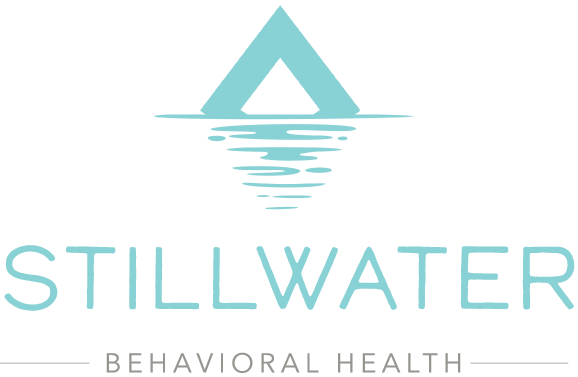Heroin Withdrawal Symptoms
Heroin is one of the most abused opioids. One of the main forms of treatment is detoxification, which includes a period of withdrawal.
What is Withdrawal?
Withdrawal is when the body begins to react to the lack of a substance it has otherwise developed a dependency for.1 If someone develops a dependence on heroin, then they will likely suffer from heroin withdrawal symptoms if they cut back on the drug or stop taking it all at once.
Questions about addiction?
Call Us Now: 1-866-232-9103
Your call is confidential with no obligation required to speak with us.
Physical Dependence
Heroin is an opioid used to alleviate pain. As a result, withdrawal symptoms from heroin can include a variety of discomfort and even pain as the body attempts to accustom itself to the lack of the drug it has developed a physical dependency for.
Psychological Dependence
In addition to the body’s physical dependence, one of the most common reasons that heroin is abused is due to how it causes feelings of euphoria. Once it reacts in the central nervous system, heroin can increase the levels of certain natural brain chemicals, including dopamine. This dopamine increase causes the brain to grow dependent on these increased levels. As the body begins to experience withdrawal, these euphoric feelings will disappear.
What to Expect?
Withdrawal symptoms vary from person to person. However, there are a few similar occurrences to expect when going through the withdrawal process.
Symptoms
While the symptoms may vary, heroin withdrawal symptoms can be both psychological and physical. Moreover, they can vary in severity based on multiple factors regarding the individual and their history of abuse.2
Cravings
Because the body develops a dependency on heroin, cravings for the substance are often a notable part of withdrawal and detox.3
Timeline
While the exact timeline depends on the individual, withdrawal is broken down into several phases that are experienced in nearly all cases. These stages include a time of heightened sensitivity to the symptoms as well as a period of recovery. Factors determining the timeline can include history, which substance was abused, and genetic factors.
This timeline can also depend on the abuse itself and whether someone used the drug by injecting heroin or snorting heroin.
Different forms of abuse can cause this drug to interact with the body in different ways. Not only does this impact the withdrawal symptoms from heroin, but it also can dictate the timeline of withdrawal. Methods such as snorting and injecting increase the rate at which heroin interacts with the brain and central nervous system, thus impacting the level of dependency.4
Withdrawal Without Medical Help
Whenever detox is conducted outside of a medical setting, it can result in serious and even life-threatening issues. While withdrawing from heroin can result in significant physical and psychological discomfort, it can also pose several risks to one’s health.

Risks Involved
One of the greatest risks is heroin overdose. Detox and withdrawal can lead to intense cravings which, if fulfilled, can cause someone to use a higher dosage than usual. This increased dosage places that individual at a greater risk of overdose.
Other risks include seizures and the development of a co-occurring condition, such as depression.
Heroin Withdrawal Symptoms
Heroin withdrawal symptoms can manifest in many forms, both physical and psychological. In many cases, these symptoms will not last more than two weeks, though the exact duration depends on the individual and their substance abuse history. Not every symptom will occur in every detox, and the severity may also vary.
The most common heroin withdrawal symptoms include
- Nausea
- Agitation
- Muscle spasms
- Cravings
- Shaking
- Sweating
- Depression
Factors That Affect How Long Heroin Withdrawal Lasts
Heroin addiction and withdrawal can vary between individuals due to many factors. These factors can be dependent on the individual and the substance but can also depend on situational aspects. They can also have an impact on the severity of heroin withdrawal symptoms.
Frequency of Use
Frequent use of heroin can cause someone to develop a stronger dependency. The body is more accustomed to experiencing the effect of abuse more often, and the brain will take longer to revert to its natural chemistry. Frequent use can also increase the amount of heroin in the body.
Amount of Drug
Only a certain amount of a substance can be processed within the body at a time. As a result, when a large amount of heroin is in the body, it can increase the duration of withdrawal as the entire dose is metabolized and eliminated.
Fentanyl Half-Life
Fentanyl is a synthetic opioid similar to heroin and often co-abused. It also has a similar half-life to heroin. This fact means that in a certain period, only half of the initial substance will remain. Half-life is the time it takes for this to occur. Fentanyl’s total half-life can be several hours long.5
Body Mass
Body mass, or weight, also impacts how heroin exists in the body, thus dictating the timeline for withdrawal. Larger body masses can slow down the rate of absorption of a substance, which overall slows the process of elimination.
This slowed process can make detox take longer, often drawing out the symptoms of withdrawal as well.
Metabolic Rate
Metabolic rate is the speed at which the body can fully absorb, process, and eliminate any substances that enter is. While this pertains to calorie intake, it can also include substances such as heroin.
Metabolism can vary depending on lifestyle, genetics, and age, creating a varying experience for recovery and treatment.
Age
One’s metabolic rate slows with age. As a result, older patients may find that it takes longer for detoxification to complete.6
Age may also be an indication of substance history. Long-term heroin abuse, especially with frequent doses, can impede the speed of detox.
Medications Used to Treat Heroin Withdrawal

MAT, or Medication-assisted treatment, is a form of treatment used to both reduce the severity of heroin withdrawal symptoms as well as aid in negating heroin effects to increase the rate of recovery.
Methadone
Methadone is an opioid agonist with is designed to react with the same receptors as heroin does without creating feelings of euphoria. It helps lessen the physical and psychological impacts of withdrawal without increasing cravings.
Buprenorphine
Buprenorphine is also an opioid. It is often used in combination with Naltrexone to treat opioid addiction, specifically heroin addiction.
Naltrexone
Naltrexone is an opioid blocker that prevents heroin effects and their impact on the brain and body. It is used to curb dependency in a way so as not to elevate the severity of withdrawal.
Alongside medications to ease withdrawal symptoms, it is also beneficial to partake in different types of therapies. Therapy can help someone understand what led to drug addiction and address any other co-occurring disorders.
Therapy Used to Treat Withdrawal
The following therapies aim to provide multifaceted treatment with an emphasis on psychology and mental well-being.
CBT
Cognitive-behavioral therapy, also known as CBT, is one of the most popular and most used forms of treatment for mental disorders, including substance use disorders. During withdrawal and recovery, CBT can be beneficial in correcting the changes in the brain reward pathways that elevate psychological heroin withdrawal symptoms. CBT can also increase the long-term success rate of treatment.
DBT
Dialectical behavior therapy is a form of psychological therapy used to treat interpersonal conflicts and personality disorders. However, due to its ability to address adverse behaviors and encourage healthy health coping mechanisms, it is also used during heroin withdrawal to prevent relapse.
Motivational Interviewing
Rather than a form of therapy, motivational interviewing is a type of counseling used to encourage the individual to analyze their life while providing the support to make positive changes.
Treatment for Heroin Withdrawal
Heroin addiction can greatly decrease the daily quality of living, especially with the threat of a heroin overdose. Many people may also find that recovery can be difficult considering the withdrawal symptoms from heroin. While withdrawing from any substance can be uncomfortable, there are treatments available to help individuals with substance use disorders.
These treatments are designed to address the source of substance abuse disorders while also aiding in recovery by reducing the severity of heroin withdrawal symptoms that may otherwise impact the success of treatment.
Residential
Residential treatment occurs in a medical facility, such as a rehabilitation center or addiction treatment center. It allows someone to focus on recovery without triggers and with access to round-the-clock care and support. Residential treatment is usually short-term but can be longer if needed.
Outpatient
Outpatient treatment allows for the individual to continue their daily routine while still seeking treatment. It also provides the opportunity to explore new perspectives and coping mechanisms in a non-medical environment.
The road to recovery can feel daunting, but you do not have to go at it alone. It is possible to achieve a healthy and fulfilling lifestyle once again.
Resources
- https://adf.org.au/reducing-risk/withdrawal/
- https://medlineplus.gov/ency/article/000949.htm
- https://www.frontiersin.org/articles/10.3389/fpsyt.2019.00592/full
- https://pubmed.ncbi.nlm.nih.gov/8271778/
- https://www.medicines.org.uk/emc/product/3387/smpc/print#gref
- https://pubmed.ncbi.nlm.nih.gov/8361073/


